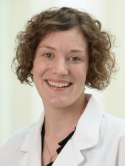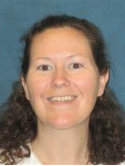Uptake and acceptability of a mainstreaming model of hereditary cancer multigene panel testing among patients with ovarian, pancreatic, and prostate cancer Journal Article
| Authors: | Hamilton, J. G.; Symecko, H.; Spielman, K.; Breen, K.; Mueller, R.; Catchings, A.; Trottier, M.; Salo-Mullen, E. E.; Shah, I.; Arutyunova, A.; Batson, M.; Gebert, R.; Pundock, S.; Schofield, E.; Offit, K.; Stadler, Z. K.; Cadoo, K.; Carlo, M. I.; Narayan, V.; Reiss, K. A.; Robson, M. E.; Domchek, S. M. |
| Article Title: | Uptake and acceptability of a mainstreaming model of hereditary cancer multigene panel testing among patients with ovarian, pancreatic, and prostate cancer |
| Abstract: | Purpose: To address demands for timely germline information to guide treatments, we evaluated experiences of patients with ovarian, pancreatic, and prostate cancer with a mainstreaming genetic testing model wherein multigene panel testing was ordered by oncologists with standardized pretest patient education, and genetic counselors delivered results and post-test genetic counseling via telephone. Methods: Among 1,203 eligible patients, we conducted a prospective single-arm study to examine patient uptake and acceptability (via self-report surveys at baseline and three weeks and three months following result return) of this mainstreaming model. Results: Only 10% of eligible patients declined participation. Among 1,054 tested participants, 10% had pathogenic variants (PV), 16% had variants of uncertain significance (VUS), and 74% had no variant identified (NV). Participants reported high initial acceptability, including high satisfaction with their testing decision. Variability over time in several outcomes existed for participants with PV or NV: those with NV experienced a temporary increase in depression (pTime < 0.001; pTime2 < 0.001), and those with PV experienced a small increase in genetic testing distress (p = 0.03). Findings suggested that result type, sex, and cancer type were also associated with outcomes including clinical depression and uncertainty. Conclusion: This mainstreaming model may offer a feasible approach for extending access to germline genetic information. © 2021, The Author(s), under exclusive licence to the American College of Medical Genetics and Genomics. |
| Keywords: | controlled study; aged; patient satisfaction; major clinical study; pancreas cancer; prospective study; ovary cancer; genetic variability; patient education; health survey; attitude to health; self report; prostate cancer; patient participation; depression; feasibility study; anxiety disorder; distress syndrome; sex difference; pathogenicity; genetic screening; genetic counseling; longitudinal study; oncologist; teleconsultation; human; male; female; article; hereditary tumor syndrome; social acceptance |
| Journal Title: | Genetics in Medicine |
| Volume: | 23 |
| Issue: | 11 |
| ISSN: | 1098-3600 |
| Publisher: | Nature Publishing Group |
| Date Published: | 2021-11-01 |
| Start Page: | 2105 |
| End Page: | 2113 |
| Language: | English |
| DOI: | 10.1038/s41436-021-01262-2 |
| PUBMED: | 34257420 |
| PROVIDER: | scopus |
| PMCID: | PMC8556289 |
| DOI/URL: | |
| Notes: | Article -- Export Date: 1 December 2021 -- Source: Scopus |
Altmetric
Citation Impact
BMJ Impact Analytics
MSK Authors
Related MSK Work
















